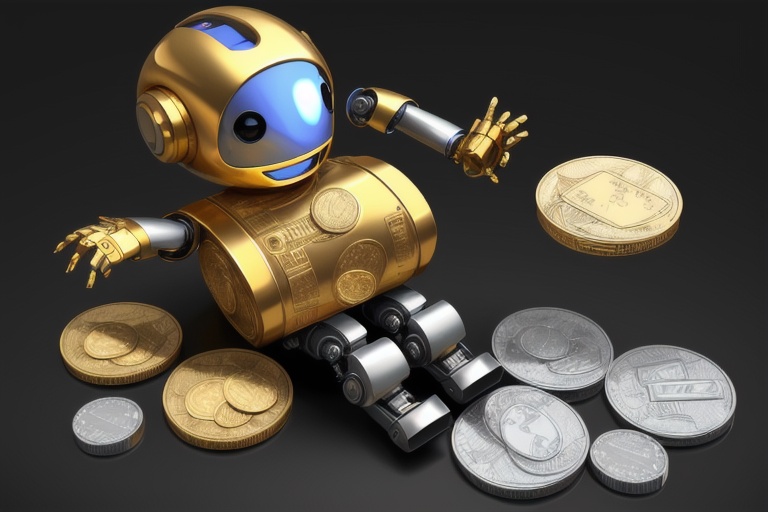Artificial intelligence (AI) and machine learning (ML) are reshaping our world, offering innovations that were once the stuff of science fiction. From advancements in healthcare diagnostics to the development of smart cities, AI and ML stand at the forefront of technological evolution. This article explores the current trends within these fields, shedding light on how they're altering industries, impacting our daily lives, and what we can expect from future developments.
Artificial intelligence (AI) and machine learning (ML) are reshaping our world, offering innovations that were once the stuff of science fiction. From advancements in healthcare diagnostics to the development of smart cities, AI and ML stand at the forefront of technological evolution. This article explores the current trends within these fields, shedding light on how they're altering industries, impacting our daily lives, and what we can expect from future developments.
Advancing Healthcare Through AI
One of the most exciting applications of AI is in healthcare. We're seeing algorithms that can diagnose diseases from imagery, such as cancer from MRI scans, with a level of accuracy that rivals that of seasoned physicians. These advancements are not just about replacing current processes but enhancing them to deliver faster, more accurate diagnoses that can lead to improved patient outcomes. With the integration of electronic health records and AI, the entire healthcare experience is being personalized and fine-tuned to address individual patient needs.
The Rise of Autonomous Vehicles
The transport sector is also undergoing an AI revolution with the advent of autonomous vehicles (AVs). Major tech companies and traditional automakers are in a race to develop the most reliable self-driving cars. AVs use extensive sensor arrays and complex ML algorithms to navigate traffic and make real-time decisions. Although widespread adoption is still in the future, pilot projects and testing are already hinting at how AVs could greatly reduce accidents, redefine personal transportation, and even alter urban planning and development.
Enhancing Customer Service with Chatbots
AI is making its mark on customer service as well. Chatbots, powered by AI, are becoming increasingly sophisticated. They can handle a range of queries, providing tailored customer support 24/7. As these systems learn from each interaction, they're getting better at understanding and predicting customer needs, leading to quicker issue resolution and higher satisfaction rates. Even in complex scenarios, chatbots are being programmed to escalate the issue to human counterparts seamlessly, ensuring a smooth customer experience.
Revolutionizing Retail
In retail, AI is being used to revolutionize the shopping experience. From personalized product recommendations to inventory management, AI is making retail more efficient and consumer-friendly. By analyzing shopping behavior and predicting trends, retailers can stock products more effectively and design marketing campaigns that better target individual interests. The emergence of virtual fitting rooms and other interactive technologies is further blurring the line between online and in-store experiences, offering consumers the best of both worlds.
Smart Cities and AI Integration
AI is not just changing the online landscape; it's also playing a significant role in creating smarter, more connected cities. By leveraging AI in infrastructure and services, cities are becoming more efficient and environmentally friendly. Intelligent traffic management systems reduce congestion and pollution. Energy usage is optimized through smart grids, and AI helps in predictive maintenance of city systems, minimizing downtime and saving resources.
The Ethical Considerations of AI
As we embrace the innovations brought upon by AI, we must also consider the ethical implications. The development of AI that can decide, act, and learn raises questions about privacy, security, and the future of employment. There's a growing call for transparent AI systems and regulations to ensure that these technologies are developed and deployed responsibly. Companies and developers must consider the societal impacts of AI and work towards solutions that benefit everyone, without infringing on individual rights or freedoms.
Preparing for the AI-Powered Future
The future of AI and ML is laden with potential, but it will require effort from all sides—developers, businesses, policymakers, and the public—to realize its full promise. Education and awareness are key in preparing the workforce for an AI-powered landscape. Continuous learning and adaptation are vital as jobs and roles evolve alongside these technologies.
Conclusion
AI and ML are not distant concepts; they are here now, actively transforming our lives. By staying informed and proactive, we can harness the power of these technologies to solve real-world problems, elevate the human experience, and drive progress toward a more intelligent and efficient future.
Information for this article was gathered from the following source.




